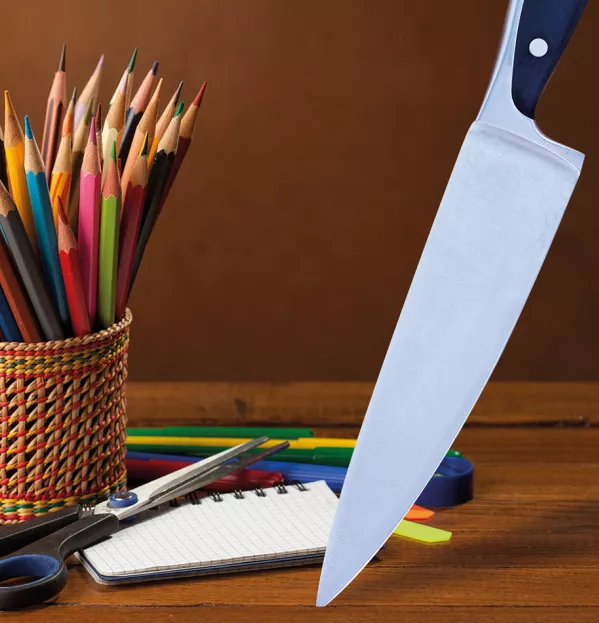Should we rethink schools’ zero-tolerance on knives?
Share
Should we rethink schools’ zero-tolerance on knives?
https://www.tes.com/magazine/archived/should-we-rethink-schools-zero-tolerance-knives

Adam and Sam* are two teenage boys who were both excluded from school for carrying knives.
Adam was caught by the police for carrying a knife after being set up by a group of older boys. It happened on a Saturday and the knife came nowhere near the school. He was in Year 11 and had never been in trouble before. On Monday morning, he was escorted to the head’s office and promptly excluded. No excuses, zero tolerance.
Sam had been threatened online by older boys who went to a different school. Terrified of what might happen on his way back from school, he packed a knife in his bag in case he needed to defend himself. It never came out of the bag, but one of his classmates dobbed him in, and he too was promptly excluded. Again, no excuses, zero tolerance.
Both students were themselves victims of exploitation: they were vulnerable boys who needed safeguarding. Adam was being groomed by the older boys, and Sam was having a tough time at home, and had nowhere to turn.
These stories aren’t uncommon.
Schools cannot be “soft” on knives: they must do all they can to keep people safe.
However, the current blanket policy of “zero tolerance” allows schools to wash their hands of a serious problem. Permanent exclusion simply shifts the issue elsewhere, often causing more problems than it solves.
The local authority school admitted to Sam’s parents that it had accepted students into the school who had been permanently excluded elsewhere for similar offences. Both Adam and Sam accepted that they had made massive mistakes. The Young Offending team saw how Adam had been exploited, and all charges were dropped. Neither boy had been in trouble before, yet they were cast adrift by their schools. With no existing relationships in new institutions, statistics show that they are at greater risk.
What they needed was to be embraced, but when you have an eye on league tables and cash-flows, holding on to these children is profoundly difficult and requires wider and deeper conversations about what roles schools should play.
It’s surely time for schools to reconsider their approach.
*Student names have been changed.
Kester Brewin teaches maths in a school in south-east London
Already a subscriber? Log in